Loading...

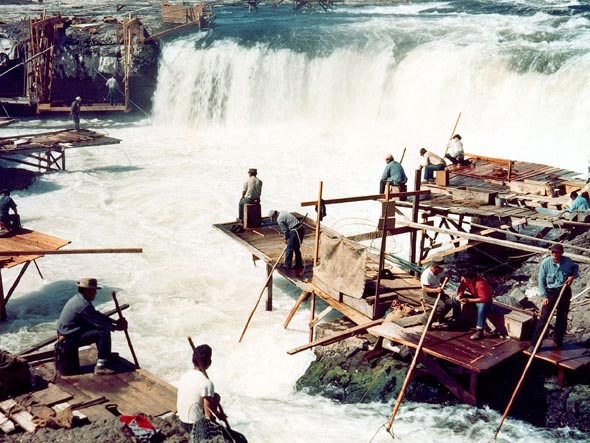
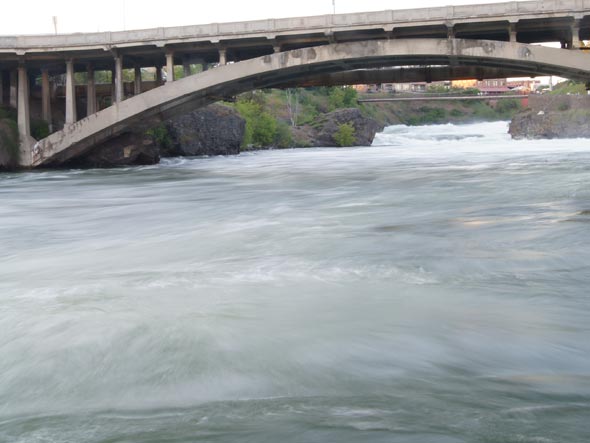
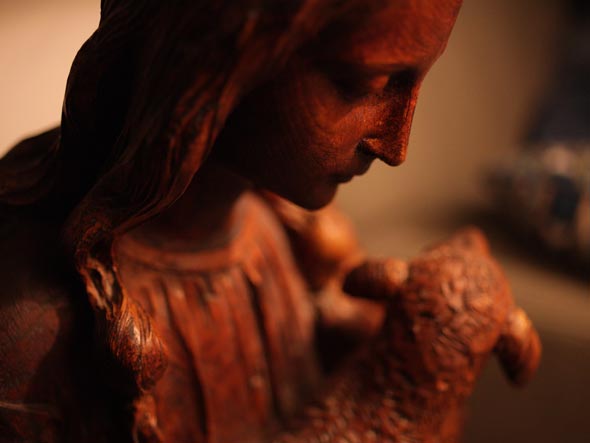
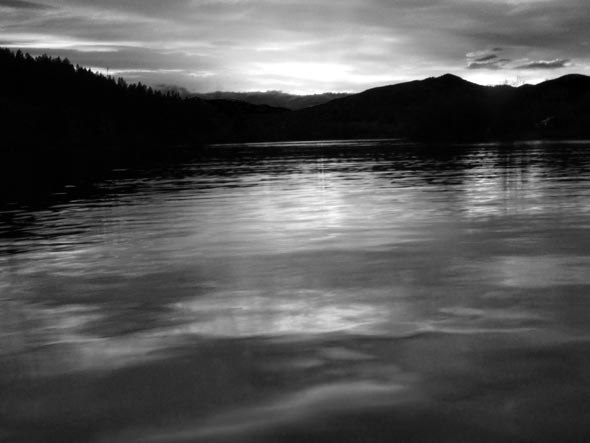
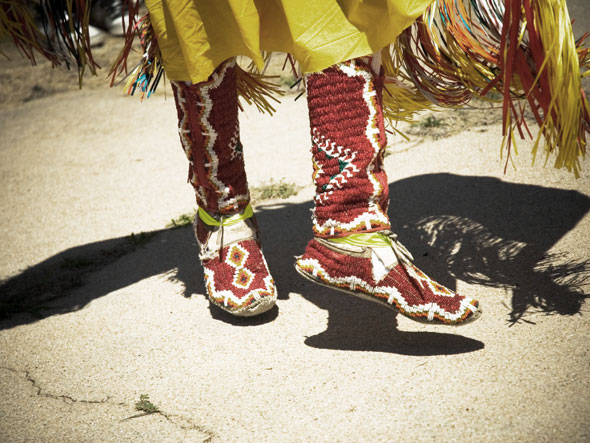
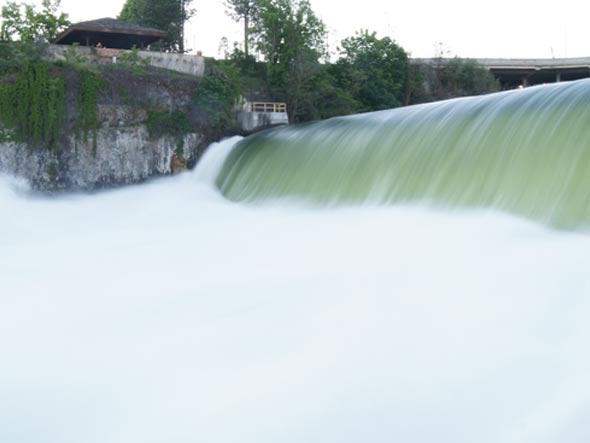
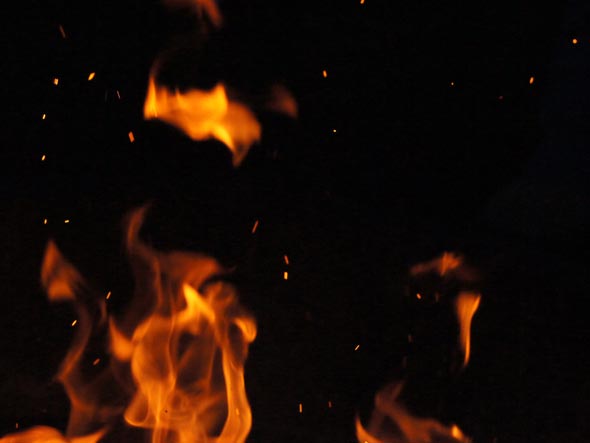
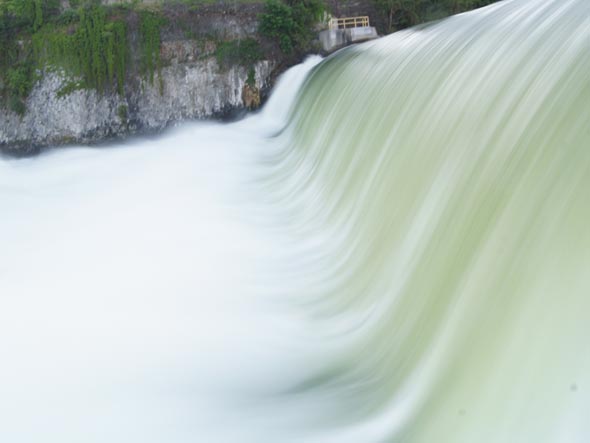
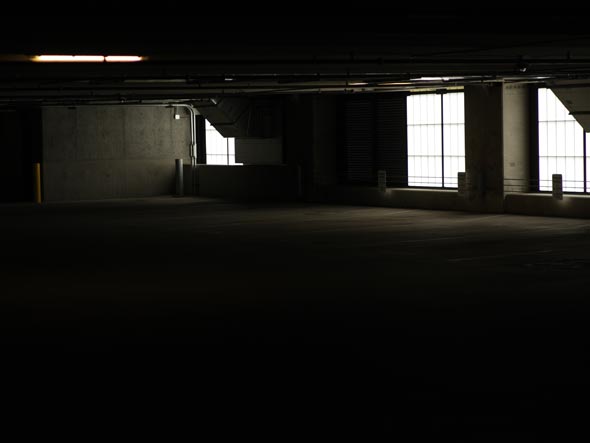
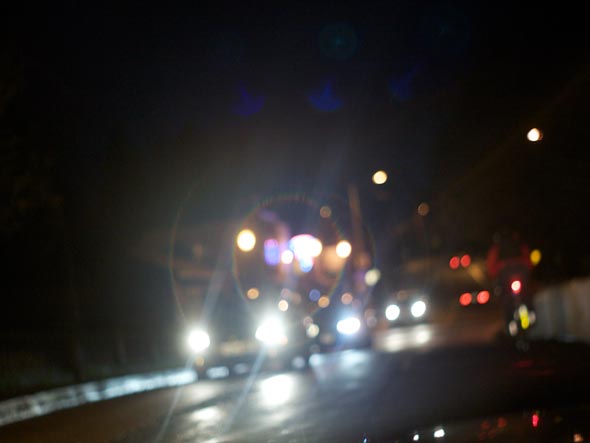
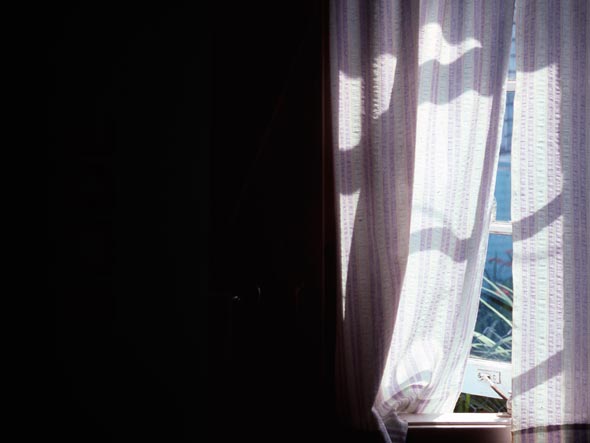
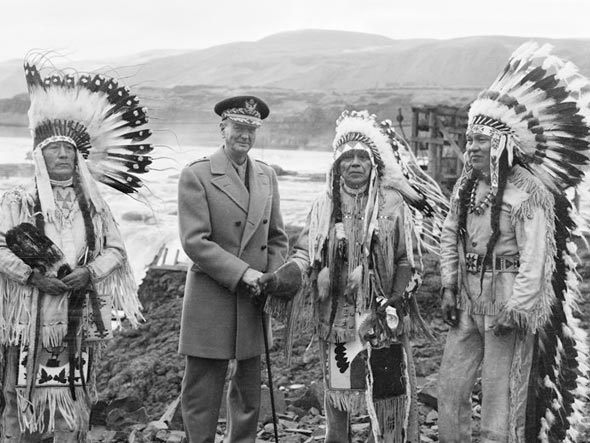
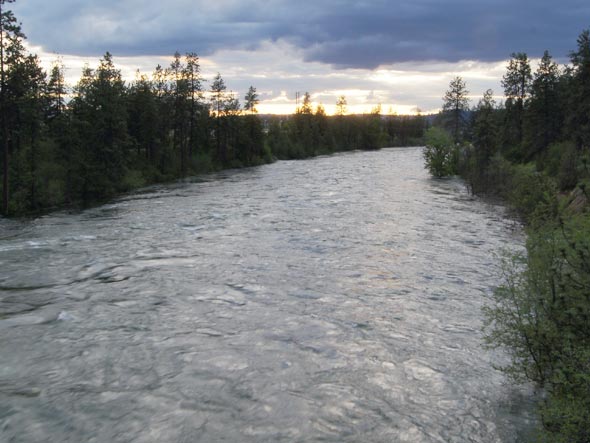
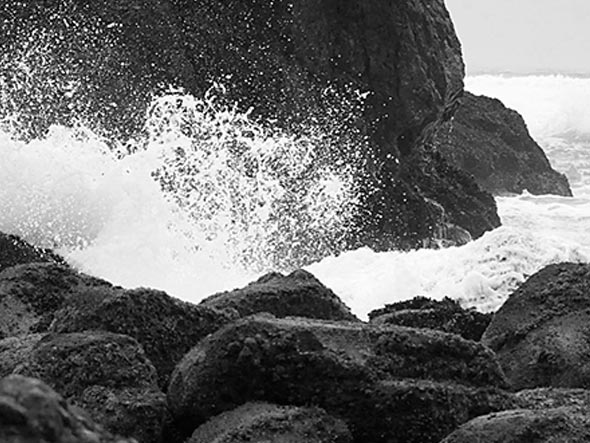
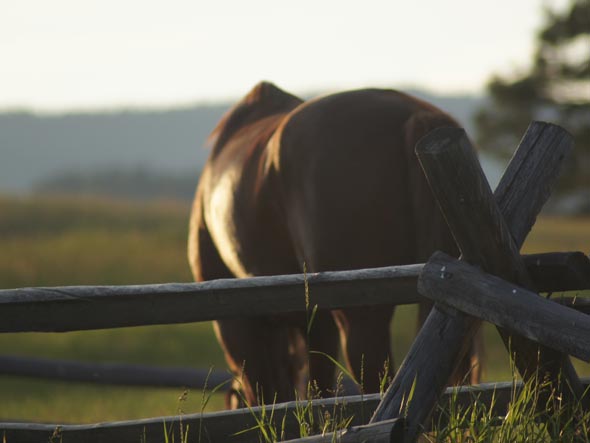
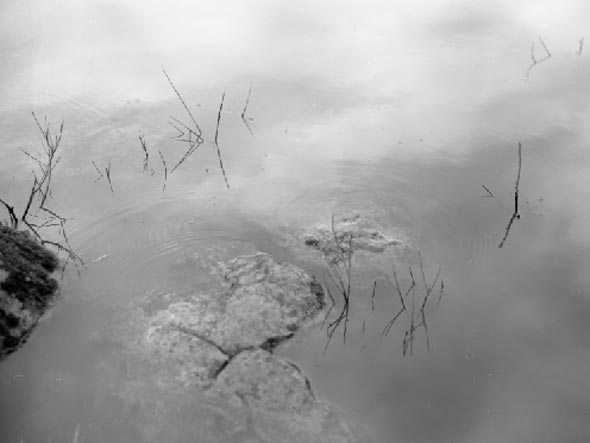
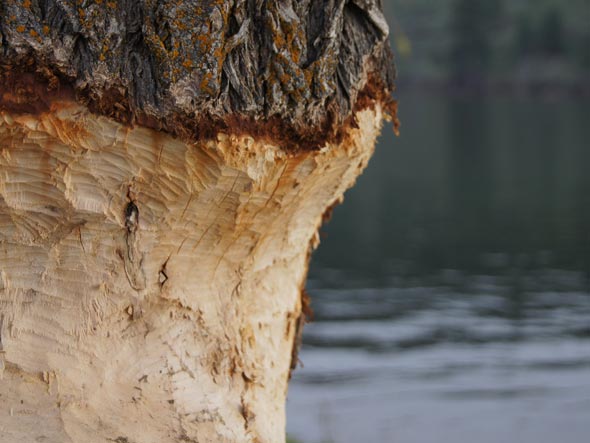
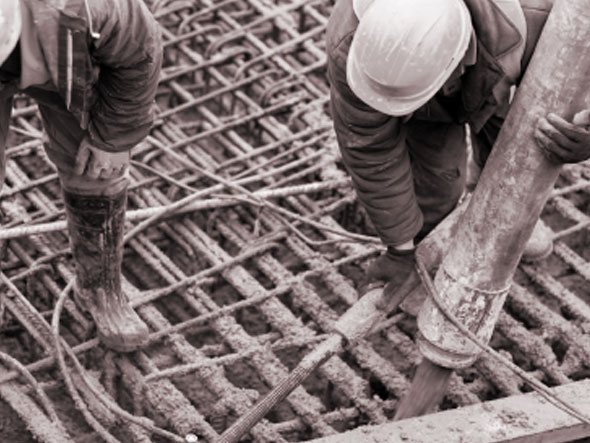
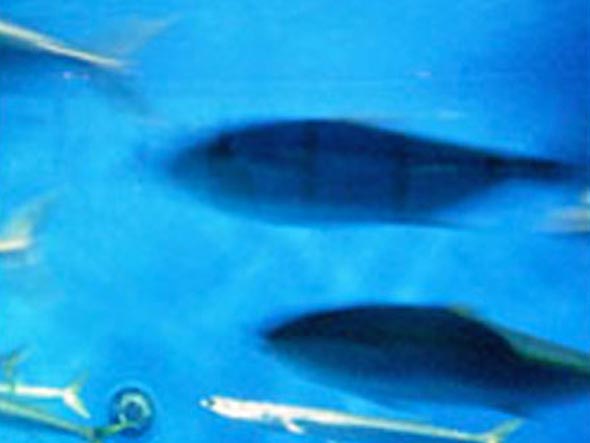
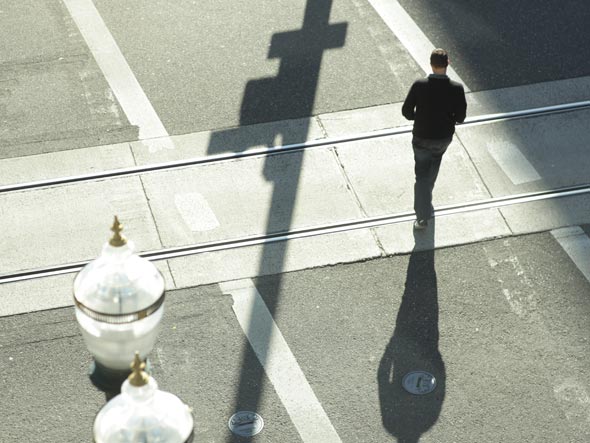
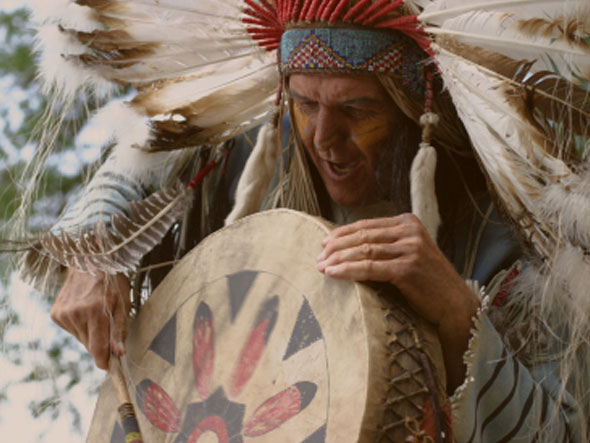
Loading...























This scene takes place at Celilo Falls, after they have built The Dalles Dam. Celilo was the place where the salmon came and the Indians caught them for thousands and thousands of years in the Columbia River, but the force of the falls and the dam are contrasting with one another. Here Red Shirt, Danny Kachiah's father, tells him about what happened the day they closed the floodgates on the dam.
"Red Shirt took me back to Celilo the day they closed the floodgates on the dam. For a few hours, it didn't seem to make much difference. The whitewater came rushing down the chutes, roaring and crashing over the falls. But down below you could see it hit the dam and start rolling back against itself, like wild horses driven into a blind canyon cutting back on their trail. By the middle of the afternoon, you could tell the water was rising. A large pool of it stretched all across the river and started eddying back toward the falls. But the falls kept on roaring as if nothing could stop them.
"Red Shirt pointed to some sticks floating toward us, and when I saw they weren't sticks but logs, I knew that rising lake was a lot bigger than I had imagined.
"Finally, the lake reached the base of the first falls, so the engineers in their hardhats and ties, and the politicians, lined up for the last pictures--the last pictures of the falls.
"Then I heard a high wail. It was even louder than the roar of the falls. All the old Celilos had turned their backs to the rising water and were lined up facing the canyon wall. Their arms were crossed and they were chanting the falls' death chant.
"The lake rose against the falls. The water kept pouring over the falls, but the more it crashed into the lake, the higher the lake rose, choking it back. I closed my eyes, praying it would stop. Then I opened them and stared. One after another, the falls drowned themselves, until the roaring stopped and I couldn't hear anything but the sucking of the dark, eddying lake as it grew larger and larger, filling up the canyon.
"As the noise from the falls died, the wailing grew louder, like a shriek. One of the reservation chiefs, who had been standing with the engineers and photographers, walked away from them and joined the old men and women with their backs turned to the dark water. He was crying when he passed us, and he said, 'We sold our mother, and now they have drowned her.'
"It grew dark and some people built fires. The chanting Celilos cast long shadows against the canyon walls. Some of the young people started up their new cars and pickups. The headlights shone over the smooth black lake as they drove down the hill and into The Dalles to go drinking or to the movies.
"But the old Celilos stood like statues, still facing the canyon wall and refusing to look at the lake that drowned the falls. They had stopped wailing by then, but the silence was even worse.
Craig Lesley is the author of four novels, numerous short stories, and, most recently, a memoir. His work has received The Western Writers of America Best Novel of the Year, three Pacific Northwest Booksellers' Association Awards, an Oregon Book Award, and the Medicine Pipe Bearer's Award. He has been the recipient of a National Endowment for the Arts Fellowship, a Bread Loaf Fellowship in the Novel, as well as two National Endowment for the Humanities Fellowships to study Native American literature. Both Storm Riders and The Sky Fisherman were nominated for the Pulitzer Prize.
Craig's memoir, Burning Fence, received outstanding praise, including these words from Kent Haruf, author of Plainsong: "Craig Lesley has been justly celebrated for his novels. Now this vivid, unflinching story of his own life, as a son and as a father, can only serve to increase his already considerable stature as a writer and, not incidentally, as a human being."